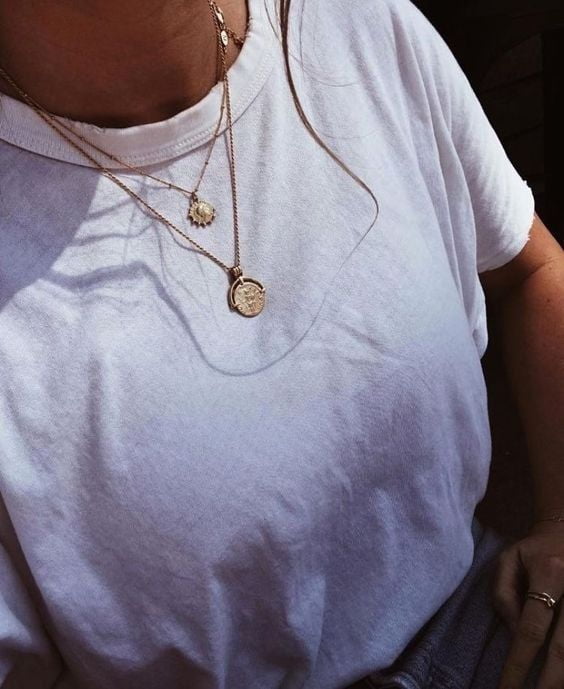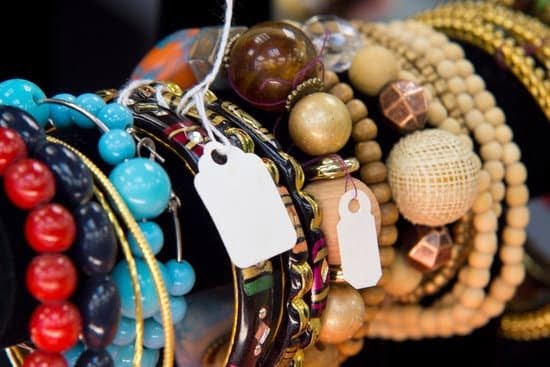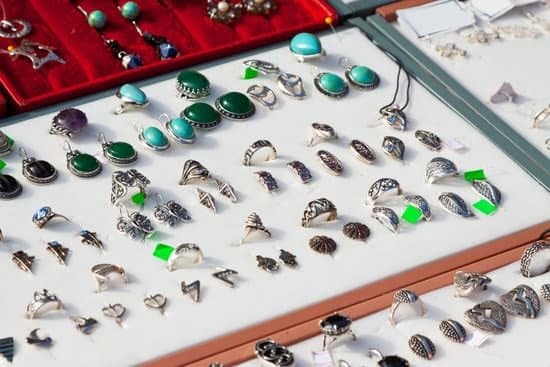Are you wondering whether using baking soda and vinegar will hurt fine jewelry? It’s important to understand the do’s and don’ts of cleaning fine jewelry to avoid damaging your precious pieces. This article will delve into the properties of baking soda and vinegar, their potential effects on fine jewelry, and alternative cleaning methods to ensure that your jewelry remains in pristine condition.
When it comes to cleaning fine jewelry, using gentle and non-abrasive methods is essential. Harsh chemicals can pose a risk to delicate metals and gemstones, causing irreversible damage. Understanding the properties of cleaning agents like baking soda and vinegar is crucial in maintaining the quality of your jewelry.
Baking soda and vinegar may be effective for many household cleaning tasks, but they can actually be damaging to fine jewelry. Baking soda’s abrasive nature can cause scratches on metal surfaces, while the acidic properties of vinegar can corrode certain metals and affect the luster of gemstones.
It’s important to be aware of these potential risks when considering these common cleaning agents for your jewelry. Ultimately, taking a cautious approach when caring for your fine jewelry will help preserve its beauty for years to come.
Understanding the Properties of Baking Soda and Vinegar
Baking soda and vinegar are common household items known for their versatility in cleaning various surfaces. However, it is important to understand the properties of these substances and how they can potentially damage fine jewelry if not used properly.
Chemical Properties
Baking soda, also known as sodium bicarbonate, is a mild alkaline compound that acts as a gentle abrasive when mixed with water. Vinegar, on the other hand, is an acidic solution primarily composed of acetic acid. When combined, the two create a fizzing reaction that is often used to remove dirt and grime from different surfaces.
Potential Effects on Different Materials
While baking soda and vinegar may be effective for cleaning certain items, they can have adverse effects on fine jewelry. The abrasive nature of baking soda can cause micro-scratches on metal surfaces and gemstones, compromising their appearance over time. Additionally, the acidic properties of vinegar can tarnish and corrode certain metals, such as sterling silver and gold.
Common Uses in Cleaning
Despite their potential risks to fine jewelry, baking soda and vinegar are commonly used in DIY cleaning solutions for other household items such as glassware, countertops, and even clothing. It’s essential to recognize that while these substances may be suitable for general cleaning purposes, they should be avoided when cleaning delicate and valuable pieces of jewelry.
Understanding the chemical properties of baking soda and vinegar is crucial in realizing their potential impact on fine jewelry. By being aware of their abrasive and acidic nature, individuals can make informed decisions when it comes to caring for their precious items without risking damage caused by these substances.
How Baking Soda and Vinegar Can Damage Fine Jewelry
Baking soda and vinegar are common household items often used in cleaning, but when it comes to fine jewelry, these substances can actually cause more harm than good. Understanding the potential damage they can cause is crucial for anyone looking to maintain the quality and beauty of their precious pieces.
Abrasive Nature of Baking Soda
Baking soda, also known as sodium bicarbonate, has a gritty texture that can scratch and wear down the surfaces of fine jewelry. When used as a cleaning agent, the abrasive nature of baking soda can cause tiny scratches on metal settings and precious gemstones. Over time, this can result in a dull appearance and diminished sparkle.
Effects of Vinegar on Metals and Gemstones
Vinegar’s acidic properties make it effective for removing dirt and grime, but when it comes into contact with certain metals and gemstones commonly found in fine jewelry, it can have damaging effects. The acid in vinegar can tarnish or discolor metals such as gold and silver, while also etching or dulling the surface of gemstones like pearls and opals.
Real-Life Examples
There have been numerous instances where individuals have unintentionally damaged their fine jewelry by using baking soda and vinegar as cleaning agents. Common issues include noticeable scratches on the metal settings of rings, pendants, or bracelets after using baking soda. With vinegar, discoloration or cloudiness has been observed on gold pieces or gemstones like turquoise. These real-life examples serve as cautionary tales for those considering using these substances to clean their fine jewelry.
Understanding how baking soda and vinegar can damage fine jewelry is essential for maintaining its beauty and value. By avoiding these harsh substances and opting for gentler cleaning methods, individuals can ensure that their precious pieces remain in top condition for years to come.
Alternative Methods for Cleaning Fine Jewelry
When it comes to cleaning fine jewelry, it’s important to avoid harsh chemicals and abrasive materials that can potentially damage the delicate metals and gemstones. While baking soda and vinegar are common household cleaning agents, they may not be the best choice for cleaning fine jewelry. Using these substances can cause harm to your prized possessions.
So instead of reaching for baking soda and vinegar, consider using the following gentle and effective alternatives for cleaning your fine jewelry:
- Use a mild dish soap: Create a mixture of warm water and mild dish soap to soak your jewelry in. Gently scrub with a soft-bristled toothbrush to remove any dirt or grime.
- Polishing cloths: Invest in a jewelry polishing cloth specifically designed for cleaning precious metals. These cloths are non-abrasive and will help restore the shine to your jewelry.
- Professional cleaning: Consider taking your fine jewelry to a professional jeweler for a thorough cleaning. Jewelers have the expertise and proper tools to clean your jewelry without causing any damage.
By using these alternative methods, you can ensure that your fine jewelry remains sparkling without risking any harm from abrasive substances like baking soda and vinegar.
It’s important to remember that different types of fine jewelry may require specific care. For example, pearls should never come into contact with harsh chemicals as they can easily be damaged. Always consult with a jeweler or do thorough research before attempting to clean specific pieces of jewelry at home. Following these guidelines will help you maintain the beauty and integrity of your precious belongings for years to come.
Caring for Specific Types of Fine Jewelry
When it comes to caring for specific types of fine jewelry, it’s important to understand that different materials require different cleaning methods. Here are some tips for caring for different types of fine jewelry:
1. Diamonds: To keep your diamond jewelry sparkling, you can use mild liquid soap and warm water to gently clean the stones. You can also use a soft-bristled toothbrush to remove any built-up dirt. Avoid using harsh chemicals or abrasive materials that can scratch the surface of the diamond.
2. Pearls: Pearls are delicate and should be cleaned with a soft, damp cloth. Avoid using any type of cleaner that contains ammonia, bleach, or other harsh chemicals, as they can damage the nacre and cause discoloration.
3. Gold: To clean gold jewelry, you can use a mild dish soap and warm water solution with a soft cloth. Additionally, avoid wearing gold jewelry when applying lotions, perfumes, or hairsprays as these substances can dull its shine over time.
4. Gemstones: Different gemstones have varying degrees of hardness and durability, so it’s essential to research the specific care requirements for each stone in your jewelry collection. For example, softer gemstones like opals and emeralds should be cleaned with a gentle solution and handled with care to prevent damage.
Overall, it’s crucial to handle each piece of fine jewelry with care and attention to ensure their longevity and luster.
Tips for Maintaining the Shine and Luster of Fine Jewelry
When it comes to cleaning fine jewelry, many people turn to household products such as baking soda and vinegar. While these items are great for various cleaning tasks around the house, they are not suitable for cleaning fine jewelry.
Baking soda is abrasive and can cause scratches on delicate gemstones and metals, while vinegar’s acidic properties can tarnish certain types of metals and damage gemstones. Using these substances on fine jewelry can lead to irreversible damage, leaving owners with costly repairs or even complete loss of their cherished pieces.
Baking soda is often used in DIY cleaning solutions due to its abrasive nature, which can effectively remove stains and grime from surfaces. However, when it comes to fine jewelry, the abrasiveness of baking soda can cause more harm than good. Similarly, while vinegar is commonly used as a natural cleaner in many households, its acidic properties can react negatively with certain metals like sterling silver and gold, causing discoloration and corrosion.
There have been numerous real-life examples of individuals causing damage to their fine jewelry by using baking soda and vinegar as cleaning agents. One common issue is people trying to clean their diamond rings with baking soda paste or soaking them in a mixture of water and vinegar in an attempt to restore their shine.
Unfortunately, rather than achieving the desired results, many have ended up with scratched gemstones or tarnished metal bands. It is essential for jewelry owners to understand the potential hazards of using these substances and seek out alternative methods for maintaining the beauty of their precious pieces.
| Baking Soda & Vinegar | Fine Jewelry |
|---|---|
| Abrasive nature may cause scratches on delicate gemstones | Can lead to irreversible damage |
| Acidic properties may tarnish certain types of metals | Can cause discoloration and corrosion |
| Real-life examples show damaged jewelry from using these substances | Jewelry owners need alternative methods for maintenance |
Consulting With a Jeweler
When it comes to caring for fine jewelry, seeking professional advice from a jeweler is essential. Jewelers have the expertise and knowledge to properly assess and care for your most treasured pieces. Whether you need guidance on cleaning methods, maintenance tips, or even repairs, consulting with a jeweler will ensure that your jewelry remains in top condition.
Jewelers are trained to understand the intricacies of different materials and gemstones, allowing them to provide specific care recommendations tailored to your unique pieces. They can advise you on the best cleaning methods and products suitable for your jewelry, ensuring that they remain free from damage. Additionally, jewelers can offer insights into storage practices and handling techniques that will help maintain the longevity of your fine jewelry.
Regular check-ups and inspections by a jeweler are also crucial in preventing potential issues with your fine jewelry. Through professional assessments, jewelers can identify any signs of wear or damage and address them promptly, ultimately preserving the beauty and quality of your pieces for years to come.
| Benefits of Consulting With a Jeweler | Importance |
|---|---|
| Expertise in assessing and caring for fine jewelry | Essential for preserving the quality of jewelry |
| Tailored care recommendations based on specific pieces | Ensures proper maintenance without risking damage |
| Identification and prevention of potential issues through regular inspections | Promotes longevity and preservation of fine jewelry |
Conclusion
In conclusion, the proper care and maintenance of fine jewelry are crucial to preserving its beauty and value. While baking soda and vinegar are effective cleaning agents for many household items, they can cause irreversible damage to delicate metals and gemstones.
The abrasive nature of baking soda and the acidic properties of vinegar can lead to scratches, discoloration, and other forms of deterioration in fine jewelry. As such, it is essential to avoid using these substances when cleaning or caring for precious accessories.
Instead, opting for gentle and non-abrasive cleaning methods is key to ensuring the longevity of fine jewelry. From utilizing specialized jewelry cleaning solutions to seeking professional cleaning services, there are various safe alternatives available for maintaining the shine and luster of jewelry. Additionally, understanding the specific care requirements for different types of jewelry-such as diamonds, pearls, gold, and other materials-will also help in preserving their beauty over time.
Ultimately, consulting with a trusted jeweler is highly recommended for personalized advice on maintaining fine jewelry. Jewelers possess the expertise needed to guide individuals in properly caring for their precious accessories while offering valuable insights into storage, handling, and regular maintenance routines. By prioritizing informed care practices that avoid harmful substances like baking soda and vinegar, individuals can ensure that their fine jewelry continues to dazzle for years to come.
Frequently Asked Questions
How Do You Clean Fine Jewelry?
When cleaning fine jewelry, it’s important to use gentle methods to avoid damaging delicate gemstones and metals. A simple and effective way to clean fine jewelry is by mixing a small amount of mild dish soap with warm water.
Use a soft-bristled brush to gently scrub the jewelry, then rinse it thoroughly in clean water. Be sure to dry the jewelry completely before wearing or storing it.
Is Vinegar Baking Soda Bad for Metal?
Vinegar and baking soda can be abrasive when used together on metal surfaces, potentially causing scratches or damage. It’s best to avoid using this combination for cleaning metal, especially on delicate or precious items like fine jewelry. Instead, opt for gentler cleaning methods specifically designed for metal surfaces.
Will Vinegar and Baking Soda Harm Silver?
While both vinegar and baking soda are commonly used for cleaning purposes, they can be too harsh for silver jewelry. The acidic nature of vinegar combined with the abrasive properties of baking soda may harm the surface of silver, leading to discoloration or scratches.
To safely clean silver jewelry, it’s best to stick to mild soap and warm water as previously mentioned or invest in a silver-specific cleaner.

Welcome to my jewelry blog! My name is Sarah and I am the owner of this blog.
I love making jewelry and sharing my creations with others.
So whether you’re someone who loves wearing jewelry yourself or simply enjoys learning about it, be sure to check out my blog for insightful posts on everything related to this exciting topic!





